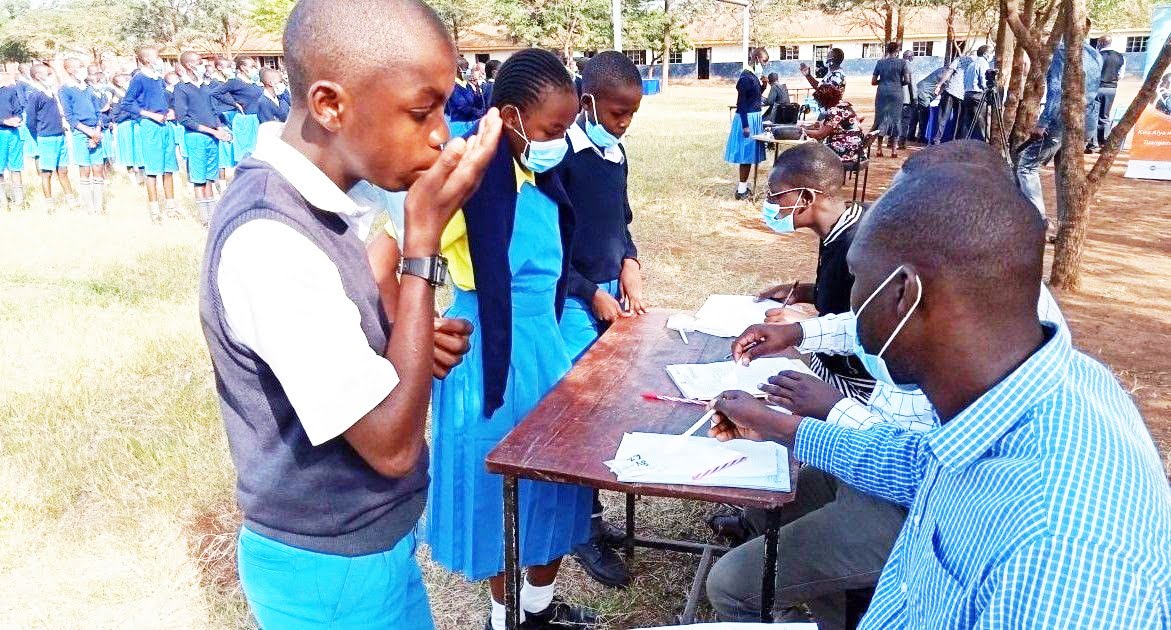By Robert Nyagah
The Ministry of Education in partnership with the Ministry of Health last year dewormed 6.4 million children (87%) and surpassed World Health Organization’s (WHO) target of deworming 75 % of the children at risk.
Since the launch of the National School Based Deworming Program (NSBDP), data from the Ministry of Health reveals that 53 million children have benefited.
Chief Administrative Secretary (CAS) for Health Dr. Rashid Aman said that the success of the government sponsored deworming project could be hugely attributed to its implementation through various primary schools where the teachers, ready infrastructure and knowledgeable teaching fraternities were available to administer the tablets.
Most of the beneficiaries of the deworming project are from rural counties and counties with some of the worst worn infestation cases. The deworming project has hugely reduced absenteeism from schools across the board.
In a recent tour of Busia County, Dr. Aman noted that as a result of the deworming campaigns, worm prevalence in the Country has decreased drastically.
“Between 2012 and 2018 the prevalence of soil transmitted worms dropped by 62%,” he explained.
He added that beneficiaries of the de-worming programme remained in school longer and performed well academically.
“Deworming has also been shown to increase the KCPE examination pass rate of treated children by 9.5%,” said the CAS.
The CAS’ sentiments of reduced absenteeism by 25 percent were concurrent with WHO’s studies which indicated that deworming reduced absenteeism from school and long term earning of the beneficiaries by 14 per cent.
Dr. Aman argues that worms’ infestation among children when left unattended can cause malnutrition and poor capacity to learn and remain in school based on frequent ailments which afflict such children.
The good success story shows that this project should be embraced and replicated across the entire country and that the link between good health care and improved education should be pursued.
It has also been proved that availability of data can shape identification and implementation of tangible health matters for communities.
Dr. Aman says that mainstreaming of the program data into Kenya Health Information System will make schools data collection centers.
He disclosed that in t next ten years, the programme will be incorporated to mandate schools to report health related data to the Kenya Health Information System portal.
Njeru Kamau, a volunteer public health community worker in Embu County, said that the success of the project shows how small scale community based public health projects incorporating voluntary public health community workers linked to schools should be encouraged at all times.
“Teachers just like community health workers could be the best link between the national and county governments in making health services a success,” she said.
Although Embu County does not fall within the 27 counties countrywide with the burden of soil transmitted helminths exceeding 20 % mainly targeted for mass de-worming, school children from the area also receive de-worming tablets.






